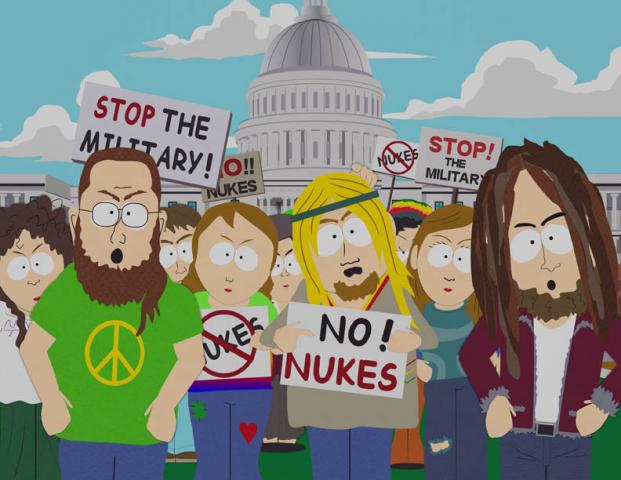It seems inevitable. Although we don’t know yet just how bad the situation is at Japan’s damaged nuclear plants in the wake of the earthquake and tsunami, the events across the Pacific are already triggering a new and differently tinged debate over nuclear power back here at home.
Nuclear defenders are calling for keeping things in perspective—fossil fuels, they point out, have many more costs and risks associated with them than nuclear power; and newer generation reactor designs are far safer than those built in Japan many decades ago (a number of US plants from the same era have the same or similar designs).
Yet figures as influential as Senator Joseph Lieberman are already saying we should “put the brakes” on developing new nuclear plants in the U.S.—despite plans for a so-called “Nuclear Renaissance” that have won strong support from President Obama.
As someone who specializes in reporting on the politics of science, I find all of this fascinating—for the following reason.
When I and others demonstrated, during the George W. Bush years, that political conservatives had grown very strongly anti-science, we often heard what I would call the “nuclear counterargument.” The point was made that, hey, during the 1960s and 1970s, it was the political left that attacked science illegitimately—particularly around nuclear power.
Here’s a typical example of the charge, from the George C. Marshall Institute book Politicizing Science: The Alchemy of Policymaking (2003):
To attack the nuclear power industry, [activists] needed ammunition, and it was readily found. They only had to go through the nuclear power risk analysis literature and pick out some of the imagined accident scenarios with the number of deaths expected from them. Of course, they ignored the very tiny probabilities of occurrence attached to these scenarios, and they never considered the fact that alternate technologies were causing far more deaths. Quoting from the published scientific analyses gave the environmentalists credibility and even made them seem like technical experts. (Bernard L. Cohen, “Nuclear Power,” p. 146)
Similarly, in reviewing my book The Republican War on Science, sci-fi author David Brin offered a counterpoint: “Take for example the ill-considered leftwing concordance to rigidly oppose nuclear power, a faulty liberal reflex that ignores real potential to reduce carbon emissions and help bridge the next few decades while we develop sustainable technologies.”
A centerpoint of this “nuclear counterargument” was that the left used fears of reactor meltdowns and the escape of radiation to unjustifiably scare the public. And if that’s true, then this is certainly the ideal moment for such misuse of science to occur again. So the question is, will it?
It’s almost like a natural experiment in the politicization of science.
We can put the point a little bit more sharply: Today’s Republican Party has evolved to the point where the denial of climate science is mainstream within the party, or even dominant. Scarcely a day goes by without a Republican politician uttering something demonstrably incorrect on the subject.
So here’s the question: Will leading environmentalists, elected Democrats, and other influentials on the other side of the aisle be caught engaging in similar abuses in the unfolding nuclear debate? Will they say things provably incorrect, in the service of trying to tank nuclear power?
Or are liberals and conservatives today truly different when it comes to handling scientific information, no matter what their core political impulses may be?
I, for one, am betting on the latter outcome. Just read comments at my blog: It’s a bunch of old lefties saying how they’ve come around about nuclear power and how they’re willing to credit the benefits as well as the costs. Or just look at Matthew Yglesias: A good liberal who has just written, “I do think it’s worth speaking up for a nuclear industry a bit. The question is safe compared to what?”
As liberals, it might seem that there are good ideological reasons for us to be anti-nuclear. Nuclear power is the child of the “military industrial complex”; private companies are making big money at it; and so on. Yet I don’t believe we’re really opposed today–and even if we are opposed, as some data would suggest, I still doubt we’re inclined to misuse science to this end.
I’m happy to be proved wrong, of course–but I’m betting that the “nuclear counterargument,” even if it may validly describe the political left during the 1970s, has little or no bearing on the politics of science in the present.
Subscribe to our newsletter
Stay up to date with DeSmog news and alerts







